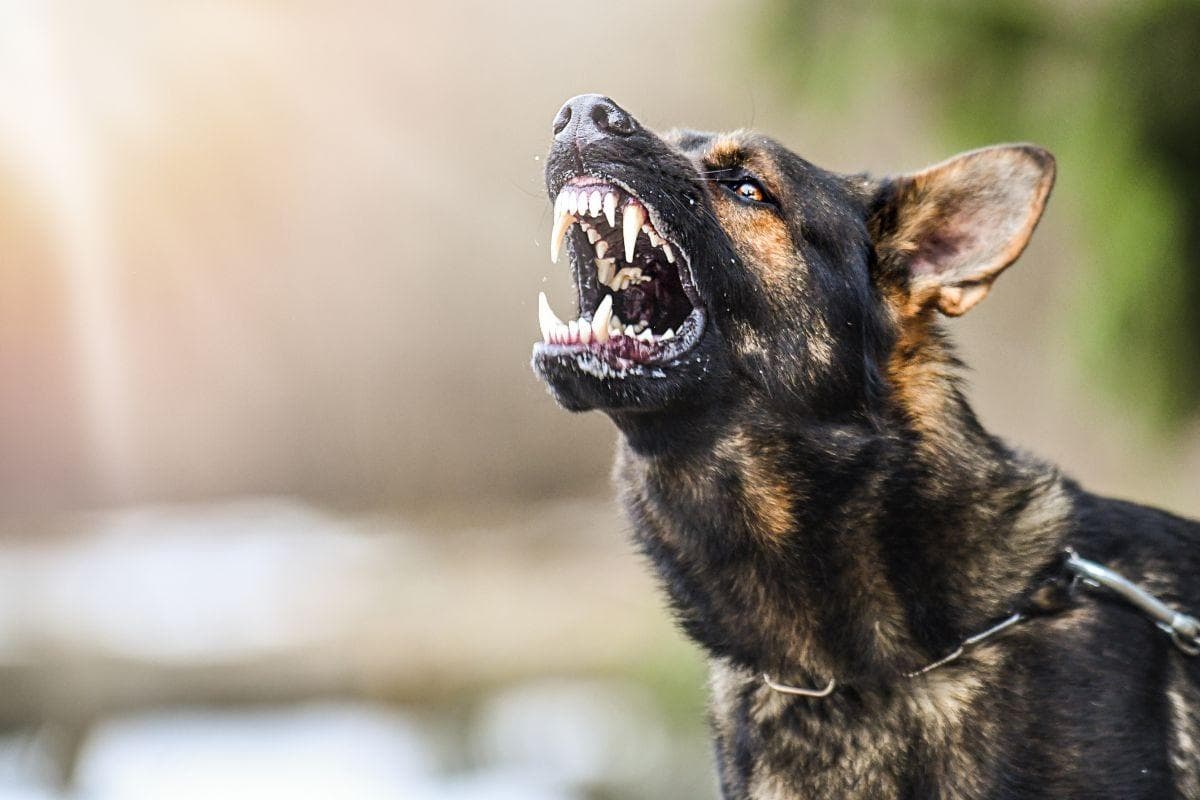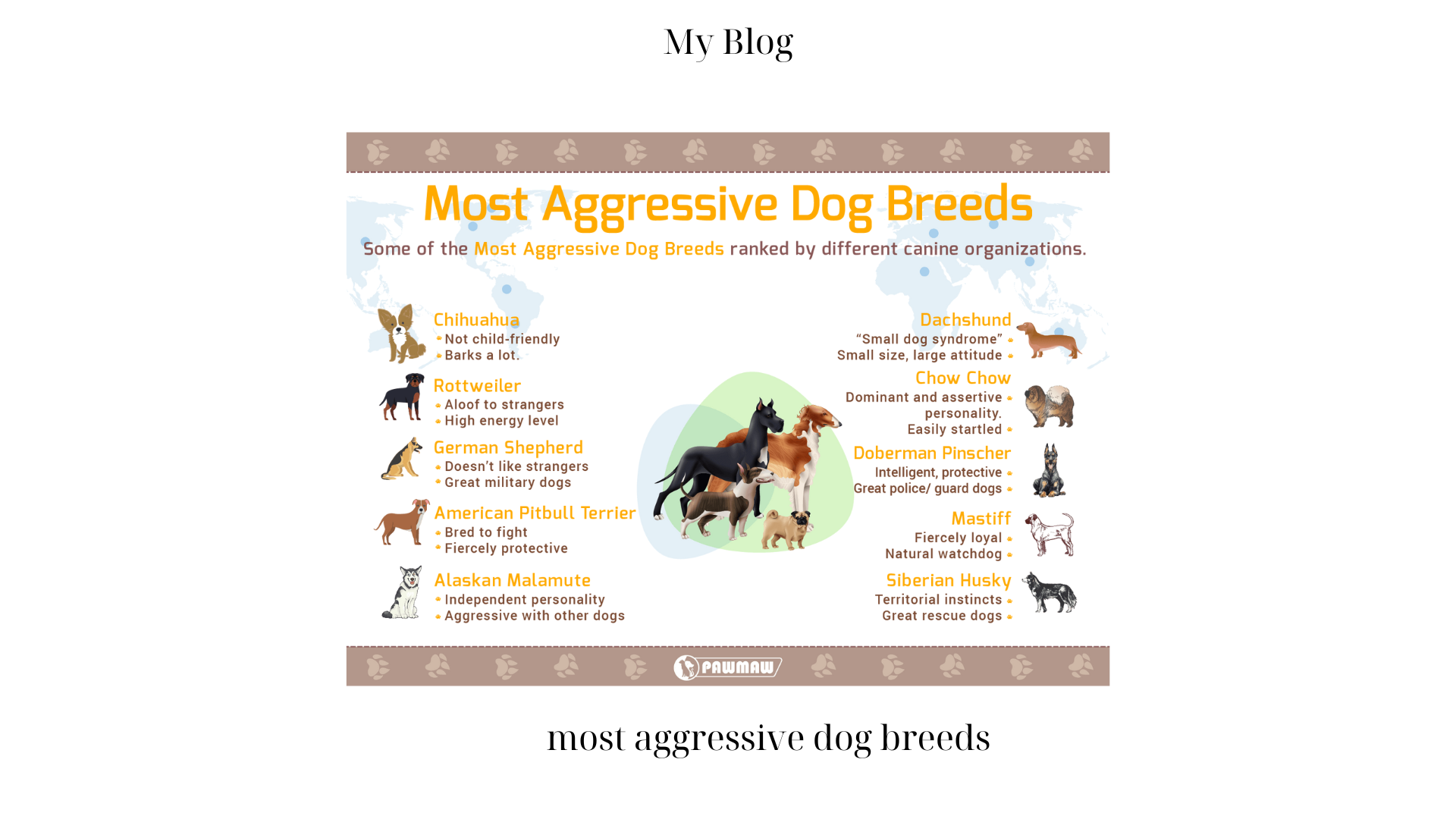When it comes to dog breeds, it’s important to remember that temperament and behavior can vary widely. While most dogs are friendly and gentle, there are certain breeds that have a reputation for being more aggressive than others. In this article, Cachlam.shop will delve into the topic of the most aggressive dog breeds, seeking to understand their temperament and behavior. It’s worth noting that aggression in dogs is influenced by various factors, including genetics, training, socialization, and individual temperament. Let’s explore the subject with an open and informed perspective.
Most Aggressive Dog Breeds: Understanding Their Temperament and Behavior

I. Defining Aggression in Dogs:
Before discussing the specific breeds, it’s crucial to understand what most aggressive dog breeds means in the context of dogs. Aggression refers to behavior that is intended to cause harm or intimidation. It can manifest in different forms, such as growling, barking, snapping, biting, or lunging. Aggression can be triggered by fear, territoriality, possessiveness, or a response to a perceived threat. It’s essential to differentiate between aggression and assertiveness or protective behavior, which are normal aspects of a dog’s instinctual nature.
II. Factors Influencing Aggression in Dogs:
Aggression in most aggressive dog breeds is a complex issue influenced by various factors. Understanding these factors can provide insights into why certain breeds may be more prone to aggressive behavior:
- Genetics:
Genetics play a significant role in a most aggressive dog breeds behavior. Breeds that have been selectively bred for guarding, protection, or fighting purposes may have a higher predisposition to aggression. However, it’s important to note that genetics alone do not determine a dog’s behavior, and individual temperament and upbringing also play crucial roles. - Training and Socialization:
Proper training and socialization are vital in shaping a most aggressive dog breeds behavior. Dogs that have not received adequate training or have not been exposed to a variety of social situations may exhibit fear-based aggression or have difficulty interacting with other animals and people. - Environment and Upbringing:
A dog’s environment and upbringing have a significant impact on their behavior. Most aggressive dog breeds that have been subjected to neglect, abuse, or inconsistent training may be more likely to display aggressive tendencies. A loving and stable home environment, along with positive reinforcement training methods, can help mitigate aggression in dogs. - Individual Temperament:
Each dog has its own temperament, regardless of breed. While breed traits can provide general insights, it’s important to remember that individual variation exists within every breed. Factors such as early socialization, experiences, and genetics all contribute to a dog’s temperament and behavior.
III. Most Aggressive Dog Breeds:
When discussing the most aggressive dog breeds, it’s essential to approach the topic without perpetuating stereotypes or stigmatizing specific breeds. Remember that aggression is not a defining characteristic of any breed, and individual dogs within these breeds can exhibit a wide range of temperaments. With that said, the following breeds have historically been associated with a higher potential for aggression:

- Pit Bull Terrier:
Pit Bull Terriers, including American Pit Bull Terriers and Staffordshire Bull Terriers, often top the list of breeds associated with aggression. However, it’s crucial to recognize that aggression is not a breed-specific trait, and many Pit Bull Terriers are gentle, affectionate pets when properly trained and socialized. - Rottweiler:
Rottweilers are known for their protective instincts, which can sometimes be interpreted as aggression. Early socialization and training are crucial for shaping their behavior and ensuring they grow up to be well-behaved and balanced dogs. - German Shepherd:
German Shepherds are intelligent and highly trainable dogs. While they are often used in police and military work due to their loyalty and protective nature, proper training and socialization are essential to prevent aggressive behavior. - Doberman Pinscher:
Doberman Pinschers are known for their loyalty and protective instincts. They require firm and consistent training to ensure they develop into well-mannered and obedient companions. - Akita:
Akitas are a large, powerful breed that can be independent and reserved. Early socialization and consistent training are crucial to prevent potential aggression issues. - Chow Chow:
Chow Chows are known for their strong-willed nature and tendency to be aloof with strangers. Early socialization and positive reinforcement training are important to prevent aggressive behavior. - Dalmatian:
Dalmatians can be most aggressive dog breeds energetic and strong-willed. Early socialization, proper training, and regular exercise are essential to prevent behavioral issues, including aggression. - Presa Canario:
Presa Canarios are large, dominant dogs that require experienced handling. Early socialization, firm training, and consistent leadership are crucial for preventing aggressive tendencies. - Alaskan Malamute:
Alaskan Malamutes are most aggressive dog breeds independent and strong-willed dogs. Proper socialization, training, and regular exercise are important to prevent potential aggression problems. - Siberian Husky:
Siberian Huskies are known for their high energy levels and independent nature
Conclusion:
Understanding the temperament and behavior of the most aggressive dog breeds is a complex and nuanced topic. It’s crucial to approach the subject with an open mind, avoiding generalizations or stigmatizing specific breeds. While certain breeds may have a reputation for aggression, it’s important to remember that individual variation exists within every breed, and responsible ownership, training, and socialization play key roles in shaping a dog’s behavior.
If you’re considering adopting a dog from one of these breeds, it’s essential to do thorough research, consult with professionals, and ensure that you can provide the necessary training, socialization, and care that these breeds require. Additionally, it’s important to understand that aggression in dogs can be mitigated through responsible ownership, positive reinforcement training methods, and early socialization.
Ultimately, when it comes to aggression in dogs, education, responsible ownership, and proactive training can make a significant difference. By understanding the factors that influence aggression and approaching the topic with an informed perspective, we can foster a safer and more compassionate environment for both dogs and humans alike. Remember, every dog deserves a chance to be understood and loved, regardless of their breed or perceived reputation.

